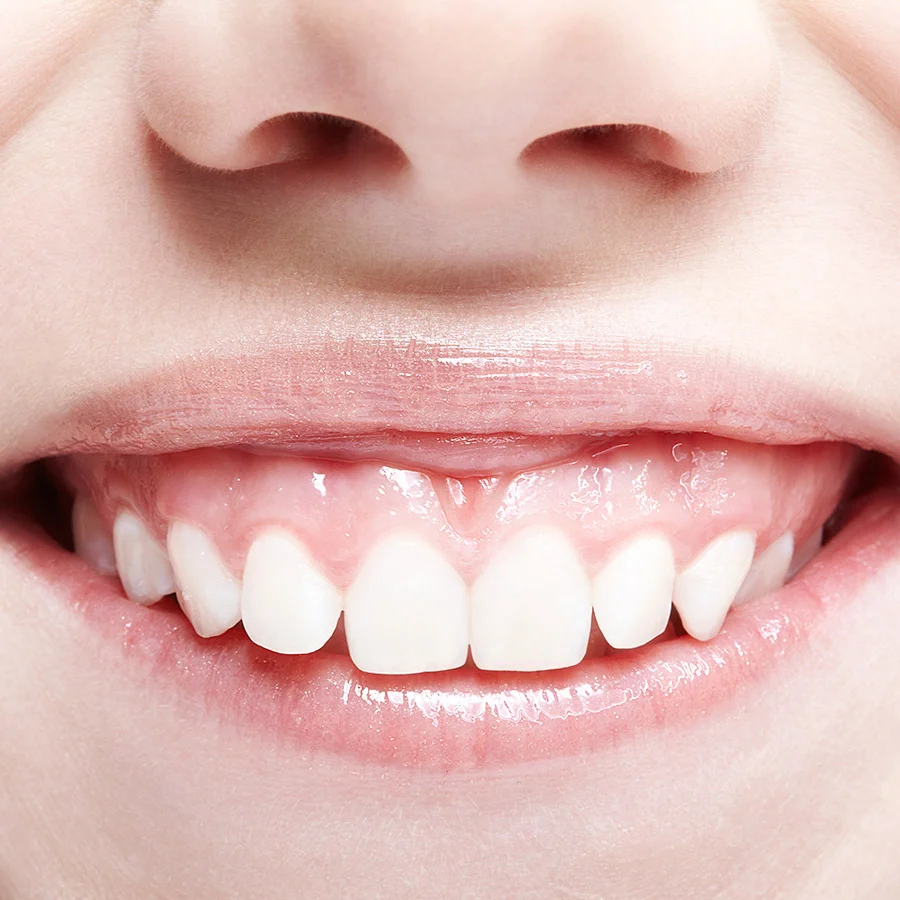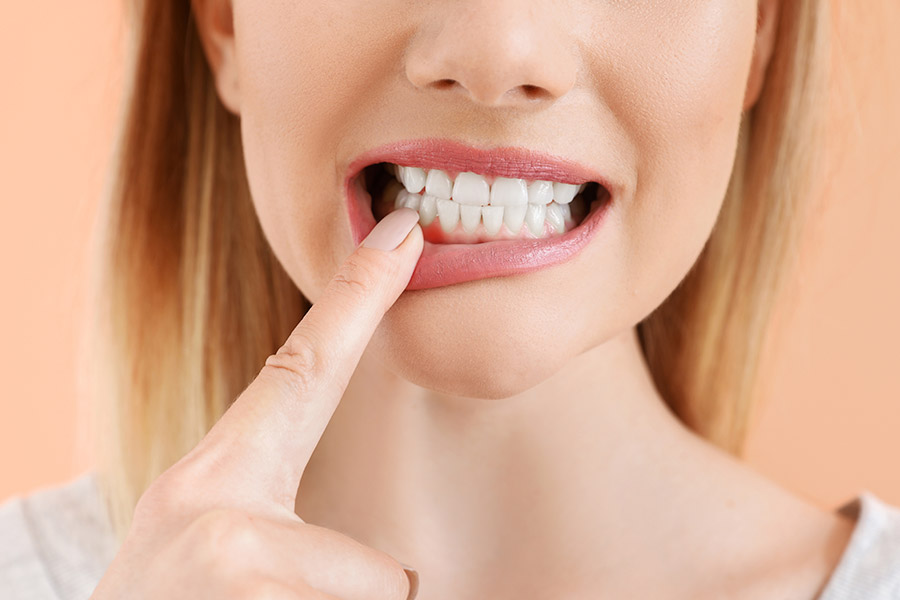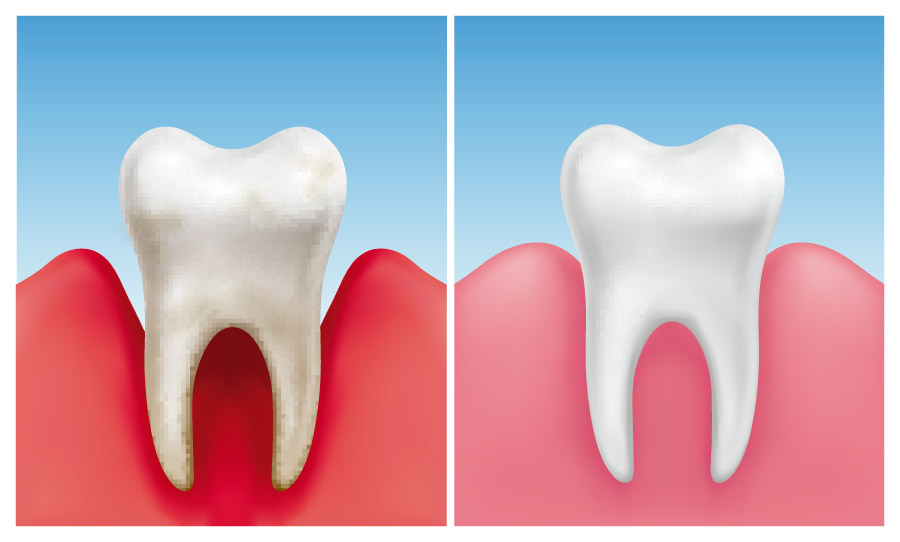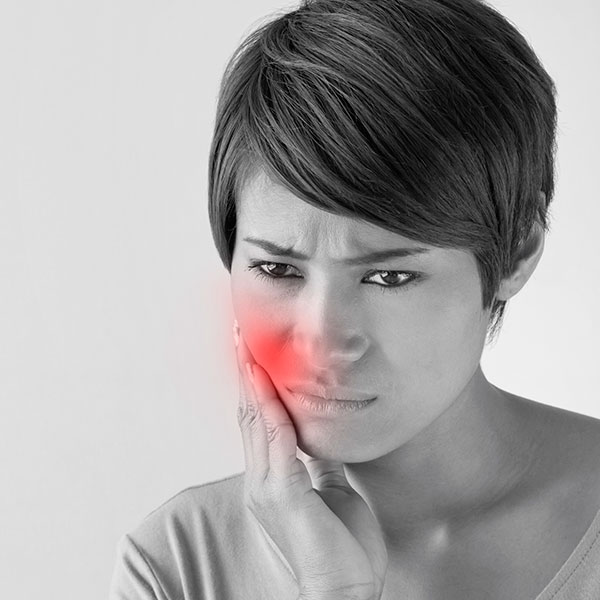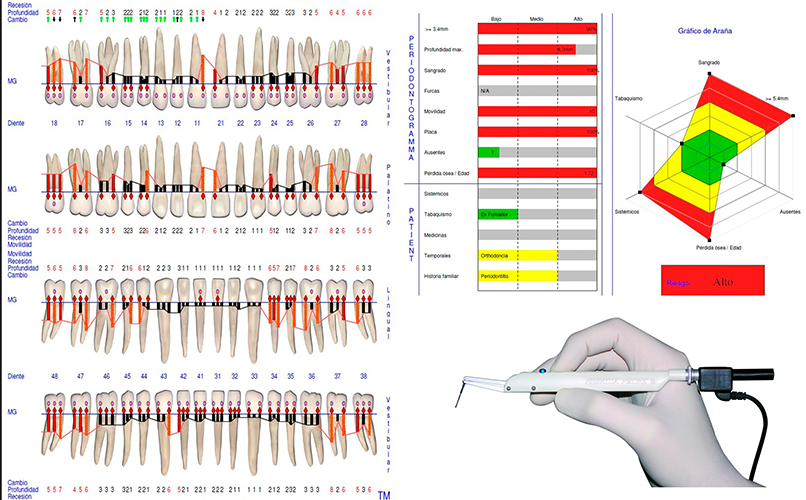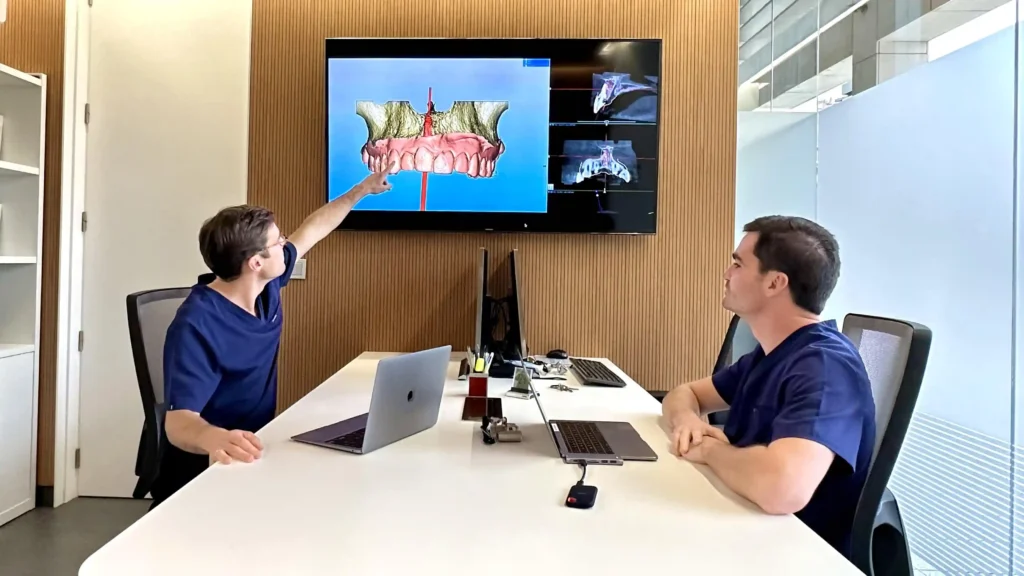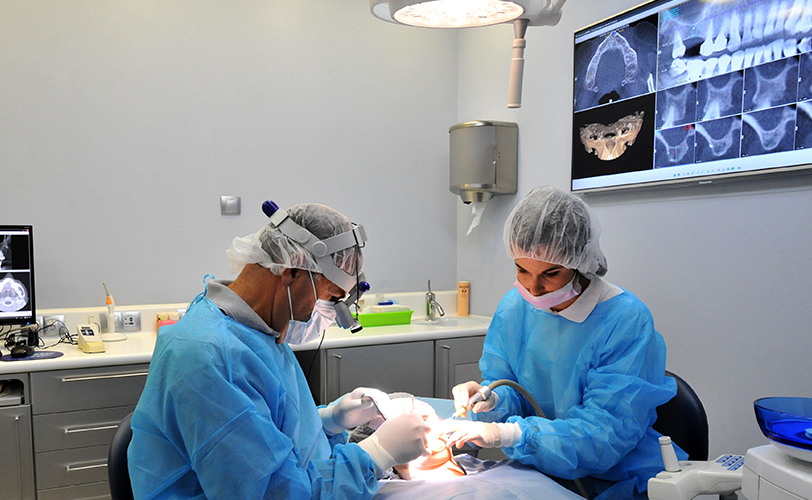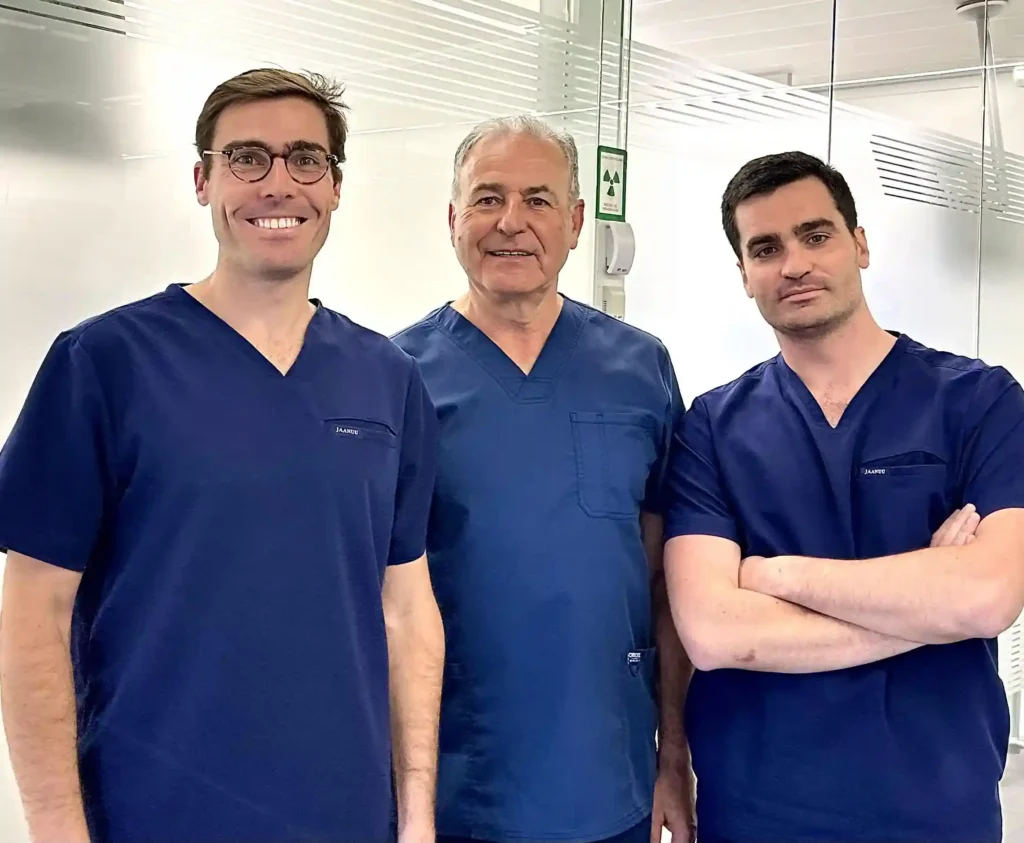This tool allows us to establish the level of individual risk of future periodontal destruction based on the behavior of certain parameters, which are introduced into an expert mathematical model. It also makes it possible to individualize the frequency of maintenance visits according to this individual risk.
We must obtain depth measurements at 3 points on each side, that is, on the part that faces the tongue and palate (lingual or palatal side) and the part that faces the «outside» (the part that touches the lips and cheeks, which is called the vestibular side).
In this way we have 6 observation points on each tooth, thus defining the state of the problem in full detail.

